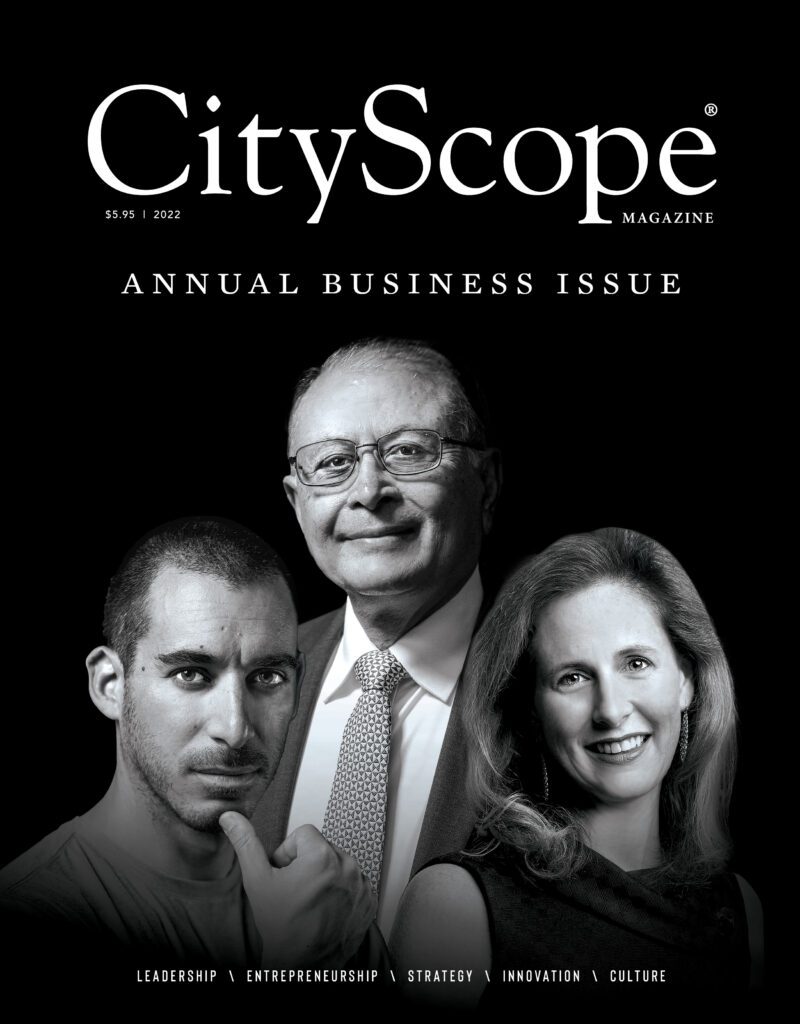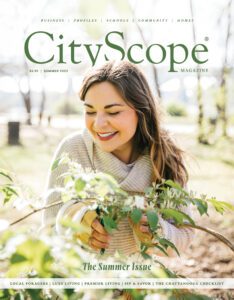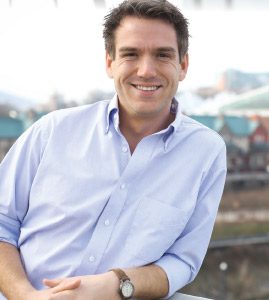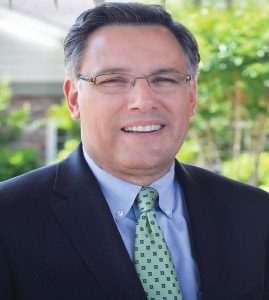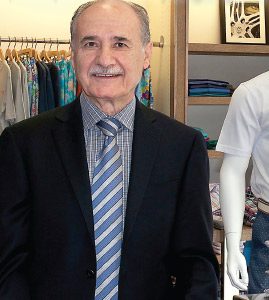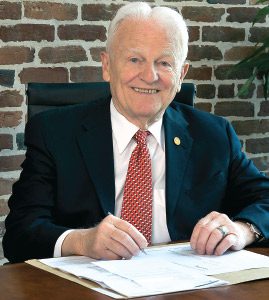By Olivia Harlow and Alexandra Hruz
Entrepreneurs come from every walk of life. According to one study from the Kauffman
Foundation, the average age of a first-time entrepreneur is 43. In tech-industries, it’s a youthful 39. In 2012, 26% of new entrepreneurs were aged 20 to 34, 24% were 35 to 44, 26% were 45 to 54, and 23% were 55 to 64.
The entrepreneurs featured here have an age range that spans nearly 80 years. Some have been at the helm of their own companies for three, four, even five decades. One hasn’t even learned to drive yet. All continue to seek new and innovative ways to build their business.
The takeaway? New business ventures and entrepreneurship can be pursued by anyone.
12 & Under: Nick Skonberg, Wagging Tailz
(pictured above)
When he was just 10 years old, Nick Skonberg decided to start his own business. After pet sitting a neighbor’s dog and cat, Nick realized that he could continue caring for more pets on a regular basis. Wagging Tailz was open for business.
“I loved taking care of pets and decided with so many animals in my neighborhood, I could turn it into a business,” he says.
Once he decided on the company name, Nick put his plan to action. He printed business cards, handed out flyers, and put an ad in the neighborhood newsletter.
Two years after initially starting Wagging Tailz, Nick is continuing to work hard to provide quality pet care. The business mostly focuses on dogs, although Nick has experience caring for various animals. He walks, feeds, and plays with pets, as well as attends to housekeeping chores while residents are out of town.
Having business experience at such a young age has helped Nick learn the importance of networking as well as helped him better understand financial responsibility. He gives his father 10% of what he earns, and his dad then matches that amount to invest.
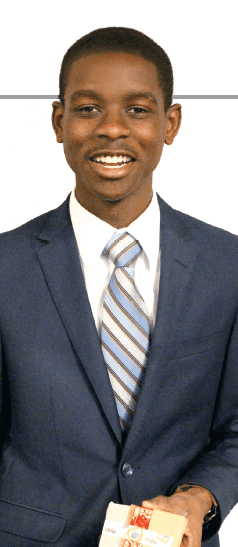 Teens: Derelle Roshell, Lingua Cocoa
Teens: Derelle Roshell, Lingua Cocoa
What started as a simple class project for 19-year-old Derelle Roshell has now developed into Lingua Cocoa, a chocolate business focused on encompassing flavors from around the world.
“It’s meant to give you a taste of culture. For example, our Indian chocolate uses curry and coconut,” Derelle explains.
Derelle initially proposed the idea for Lingua Cocoa through LAUNCH—a local organization aimed to empower younger generations through entrepreneurship—but when he and his classmates won the competition with their pitch, he decided to take control and pursue making the dream a reality.
At just 19, Derelle has definitely worked hard to maintain personal and professional balance in his life. He currently studies business at Chattanooga State, works part time, interns with the Chattanooga City Hall, and works for LAUNCH to help inspire other teen entrepreneurs like himself.
Derelle says he takes a lot of pride in breaking racial and generational stereotypes while serving as a role model to other men and teens in his community. He often encourages others his age to go after their dreams like he did. “Don’t be scared,” he says. “A lot of teenagers are afraid of growth, but they shouldn’t be.”
John Brandon is dedicated to providing the very best childcare available. As co-founder and CEO of caregiving service MyManny and founder of NYC Mannies, John works to enrich not only the lives of children, but also their male caregivers.
After great response and noticeable demand from NYC Mannies—the company he co-founded with his roommate in the spring of 2013—Brandon decided to expand further. My-Manny was launched in January 2015 and has already received recognition worldwide. Media groups like CNN International and Good Morning America have talked with John about his unique perspective and passion for quality childcare.
John does understand that many people may think finding caregivers through the Internet is unsafe, but he’s working on changing those opinions. “I want to provide a safe and trusted environment where families can connect with well-qualified guys,” he says.
During NYC Mannies’ first year in operation, there were more than 300 manny applications in New York alone. Within the first two months of MyManny’s launch, 160 men signed up nationwide. John’s motivation for his businesses comes from knowing that he’s making a positive impact in the lives of kids.
“The stories that touch me the most are the ones where the child has something to overcome and the manny helps him get there,” he explains. “Every case is unique and that’s why I spend so much time with each family to find the right caregiver.”
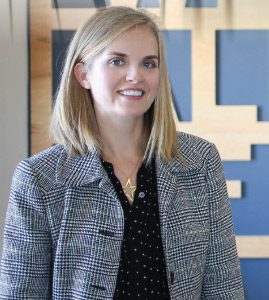 30s: Kelly Fitzgerald, Society of Work
30s: Kelly Fitzgerald, Society of Work
After earning a degree in architecture from Auburn, Society of Work founder Kelly Fitzgerald started her career in the design field. But after several years, she found herself struggling to stay motivated. In her free time she began developing a business plan, and after a round of layoffs left her jobless, she decided to bring the plan to fruition. In 2013, Kelly launched Society of Work, Chattanooga’s first shared workspace community.
“I got to know a lot of freelance writers and designers, and they didn’t always enjoy
working from home and didn’t always want to work at a coffee shop,” Kelly says. “I started researching the co-working model, and I thought it was feasible for Chattanooga.”
As a first-time entrepreneur, Kelly has faced a learning curve while discovering how to navigate the business world, market her fledgling company, and network throughout the city. But her growing pains have resulted in positive change. “I’ve learned to put on a thicker skin,” she says. “Even when I may not have the most confidence, I have to push out any doubts.”
She credits a network of local women business owners (“We learn from observing each other’s actions.”) and one famously flamboyant and multi-faceted entrepreneur (“Dolly Parton has accomplished a lot. She’s very true to herself, and I really appreciate that.”) with helping her learn the ropes of business ownership.
“If you don’t have a good support network of people you can rely on, it’s going to make a tough road even tougher,” Kelly says.
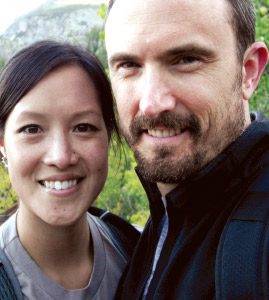 40s: Stephen Culp, Smart Furniture, Delegator, PriceWaiter, Chattanooga Renaissance fund, Causeway
40s: Stephen Culp, Smart Furniture, Delegator, PriceWaiter, Chattanooga Renaissance fund, Causeway
Stephen Culp gives a whole new meaning to entrepreneurship. He is a co-founder and principal of Delegator, PriceWaiter, Smart Furniture, the Chattanooga Renaissance Fund, and the non-profit ventures Causeway and CF Smackdown. A former U.S. Navy Reserve Officer, Peace Corps Volunteer, attorney, and NCAA Division I fencer, he studied at UNC-Chapel Hill, Stanford Law School, the Stanford Center on Conflict and Negotiation, the Université de Paris VII, and at the Institut d’Etudes Politiques.
He has been an advisor or director to dozens of Chattanooga organizations and companies, a trustee of the Lyndhurst Foundation, and a member of Mayor Berke’s transition team. He is a black belt, was a torchbearer for the 1996 Olympic Games, and holds four patents for the original Smart Furniture design-on-demand model. In 2010 he represented the southeastern United States in Europe as a Marshall Fellow. He is a husband and father of two children, and is currently working with researchers from Israel and UAB to put an end to cystic fibrosis.
“It is a gift to be alive in this city, in this country, and on this earth,” Stephen says. “I try my best not to take this gift for granted. So I try to help others to help themselves – through cultivating the entrepreneurial spirit in all of us, which, in my book, extends beyond for-profit endeavors.”
50s: Greg Vital, Independent Healthcare Properties, Morning Pointe Senior Living Communities
Greg Vital is founder, President, and CEO of Independent Healthcare Properties and Morning Pointe Senior Living Communities. He has dedicated his career to revolutionizing assisted living and care for those with Alzheimer’s.
His company has grown from a one-man business to a company with more than 1,000 employees, and his vision to provide quality health care for the elderly through hospitality and life enrichment has impacted thousands. Morning Pointe—what Vital calls “a signature campus with a serving spirit”—now has 25 locations across five states in the Southeast region.
After working for 10 years in a large senior corporation, Greg saw an opportunity to extend quality of life for seniors who didn’t need a nursing home and provide a new approach to care by offering hospitable assisted living and services to those with memory loss.
“People are living longer, staying healthier, and none of us are immune to getting older,” he says. “I have always had a great respect for seniors and wanted to raise the standards of their care and quality of life.”
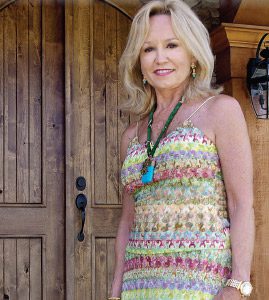 60s: Jan Frost, CWJ Properties
60s: Jan Frost, CWJ Properties
Even though she’s 67 years old, Jan Frost, owner of CWJ Properties, isn’t thinking retirement. She’s been in the home building industry since 2002 and has her sights set on crafting beautiful homes for area families well into the future.
Jan’s career as a builder wasn’t the most typical, as she didn’t get into the industry until she was in her 50s. With no real background or training, she set out to develop
her skills and knowledge through practical experience.
As a female business owner in an industry dominated by men, Jan acknowledges that her path hasn’t always been an easy one. She credits strong working relationships with a variety of subcontractors and a shrewd business intuition as her keys to success.
“When I first got into the business, I think people were a little wary,” she admits. “It was awkward in the beginning, but the respect has grown, and I think everyone values my opinion as much as I do theirs.”
Her words of advice for other women with entrepreneurial aspirations are sage and simple. “Go for it,” she says. “Get in there and earn respect. Be willing to listen, share, and exchange ideas. Learn from others and let them learn from you. Don’t act like you know it all, because you don’t.
70s: John Yacoubian, Yacoubian Tailors
John Yacoubian came to the United States from Lebanon in 1968 with little money in his pocket but a significant talent for tailoring. He had learned to create clothing at a young age, but his ability was more than a skill—it was a passion.
John received degrees in tailoring from Ecole Professionnelle de Coup de Couture in Paris and Gentleman’s Garment Design in Chicago. He worked as an intern, and after a few years, he decided to branch out on his own. With just $2,000, he bought fabrics, paid rent, and budgeted other expenses. In the first few months, money was tight, and he was on the brink of giving up when things seemed to fall into place. “Heaven helps you sometimes,” he says.
Since opening its doors in November 1969, Yacoubian Tailors has been one of Chattanooga’s top destinations for clothing. John’s favorite part of being a professional in the fashion industry is giving customers confidence through finding clothing that best suits them. “When I can pick the right garment for each person and make them happy, I’m happy,” he says.
He attributes much of his success to perseverance. “Don’t give up. As long as you know what you want is the right thing, you can always excel,” he says. “Like weather, everything is up and down. There are winter days and summer days. If you’re smart enough, you can prepare for the tough times.”
80s+: Joseph “Joe“Decosimo, Elliott, Davis, Decosimo
Joe’s professional journey started with another firm in Chattanooga, where he worked for nearly 20 years. Eventually, he and two other em- ployees from that company left the firm and partnered to form Joseph Decosimo and Company in 1971. Over the years, the company became one of the top public account- ing and business advisory firms in the country.
“We started with 6 people—3 partners and 3 employees—and now have about 300,” he says.
In 2014, Joseph Decosimo and Company joined with Elliott Davis to form Elliott Davis Decosimo. Elliott Davis Decosimo ranks among the top 30 accounting firms in the U.S. With over 850 professionals in 16 offices across seven states, they provide comprehensive assurance, tax and consulting solutions to di- verse businesses, organizations, and individuals.
“I’m very proud of the fact that the community sees our firm as a group of individuals interested in the community itself in terms of giving to the community, helping the community, and being part of the community,” he says.
His legacy of hard work and dedication to community has been influential not only in the firm but also for his family. He has nine children, and three of them work in different roles at the company. One of his grandchildren is even planning to join the firm.
Joe’s favorite part about his work is forming relationships. He doesn’t see his work as work, and he doesn’t see his clients as merely clients. “They’re my family,” he says. “That has been a blessing to me to have the opportunity to have clients not only as business associates, but as dear friends.”
